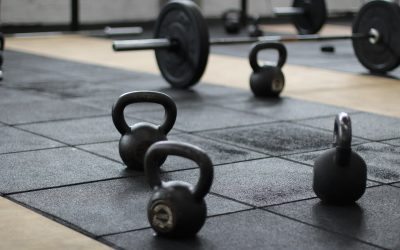
Exercise:
The first thing I want to talk about here is the difference between physical activity and exercise. Whilst both are important, they are sometimes confused for the same thing when this is not always the case. The World Health Organisation (WHO) define physical activity as any bodily movement produced by skeletal muscles which requires energy expenditure. Exercise is a subcategory of physical activity which is planned, structured, repetitive and purposeful in the that it aims to improve one or more components of physical fitness. So, simply put, physical activity can include gardening, house chores and walking instead of driving whereas exercise would be doing a healthy hearts academy home workout or a Zumba session.
It is recommended that we complete 150 minutes of moderate aerobic activity each week which is spread out throughout the week. Now, this is the minimum recommendation so if you complete more than this you will receive greater benefits. Being active and exercising regularly makes your heart stronger meaning that there is less pressure on your arteries and so lowers your blood pressure. This significantly lowers your risk of cardiovascular disease. It helps you lose weight which also lowers your blood pressure. It raises levels of HDL, good cholesterol, which removes the bad cholesterol meaning it is less likely to block your arteries and cause a heart attack. PA helps you use up the extra glucose (sugar) in your blood which lowers blood glucose levels reducing the risk of hyperglycaemia. So, just by doing regular exercise you can reduce your blood pressure, weight, cholesterol and blood sugar levels, all of which are risk factors of cardiovascular disease which I spoke about in the risk factors section.
Now I understand that if you have recently had a heart event or have been diagnosed with a heart condition this can be an uncertain time for you. Maybe the thought of making your heart work is scary and makes you feel nervous. If you have been through cardiac rehabilitation you will have been taught how to exercise safely and should be aware of your heart rate training zone and the RPE scale. I have created a Healthy Hearts RPE scale which you can print off and have with you when you exercise. It might be an idea to write your heart rate training zone at the top of your RPE scale as something to refer too. For anyone who hasn’t been through cardiac rehabilitation it is important to refer to the exercising safely video before starting any exercise.
As well as doing your 150 minutes of moderate exercise each week. Small changes on a daily basis can also help. Taking the stairs instead of a lift, walking up the escalator, walking instead of driving, investing in a standing desk and parking further away from the shop are all things you can be doing on a daily basis to help increase your activity each day. If you walk up 10 steps each day instead of taking the lift this equates to walking up 70 steps each week and 3640 steps a year all from making one small change in your daily routine.
Introducing exercise into your weekly routine can be challenging, especially if you have never really done it before and even more so if you don’t like it. But now is the perfect time to start. It is important to find something that you can enjoy doing. If you don’t like going to the gym, you don’t need to go to the gym. I have designed plenty of home workouts you can do from the comfort of your own home and there lots of different exercises you can do instead.
DASH Diet
The Dietary Approaches to Stopping Hypertension (DASH) diet was developed in response to rising incidences of high blood pressure. It is...
The Eatwell Guide
Similar to the Mediterranean diet, the Eatwell guide is the governments healthy eating advice. You may well have seen a picture of this...
Mediterranean Diet
Incorporates the traditional healthy living habits of people living in countries which border the Mediterranean sea including France, Greece,...
Diet
There is lots of different information out there in regards to diet. There are also many different types of diet you can choose from and quite...
Running
Another great form of aerobic exercise counting towards your 150 minutes a week of moderate activity. Running isn’t for everyone but for those...
Badminton
Badminton is an aerobic activity and will count towards your 150 minutes of moderate activity each week and will help strengthen your heart....
Cycling
According the British Medical Association, cycling 20 miles each week reduces the potential to develop heart disease by 50%. Cycling is...
Walking
Free exercise available to anyone at any time. It can be overlooked as a form of exercise but brisk walking can help build stamina, burn...
Weight Training
Current research is showing that weight training is a safe and effective method of training for people with and without heart problems. It has...
Yoga
Yoga is shown to improve stress, anxiety and depression. While it does not count towards your weekly exercise total (as it is not classed an...
Swimming
Swimming is a great exercise to develop strong muscles whilst helping to lose weight and is one of the few activities that works your whole...











